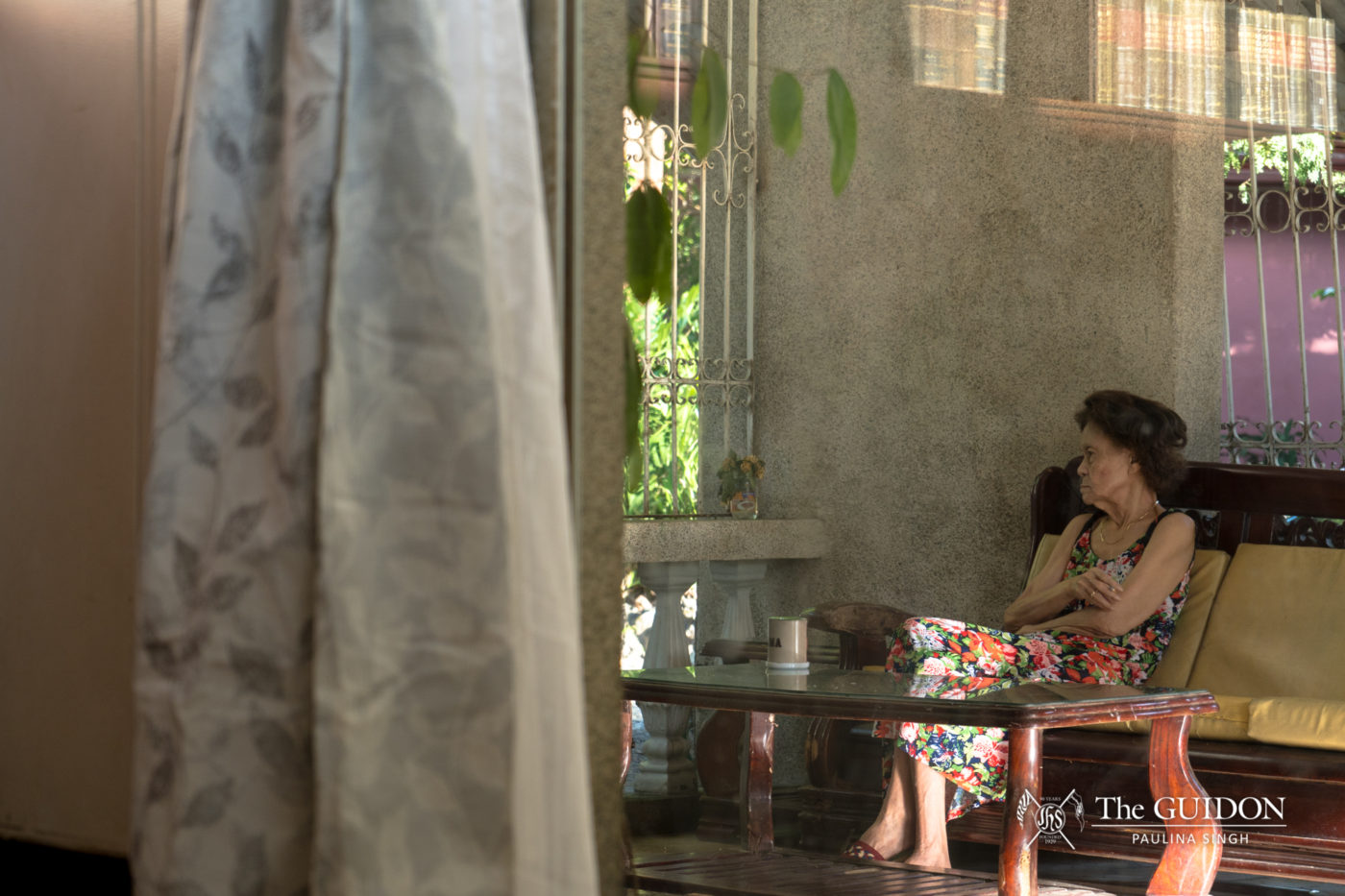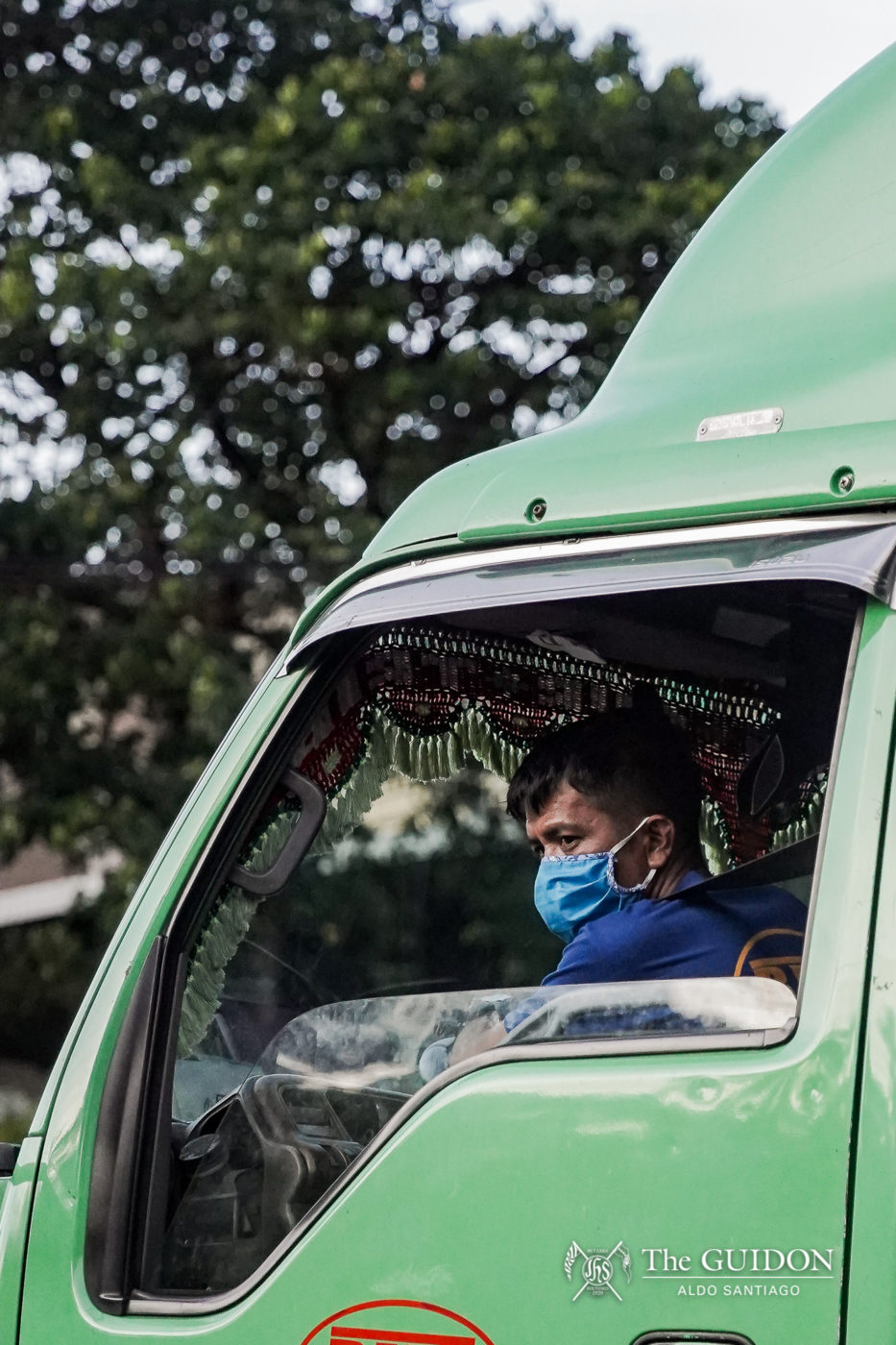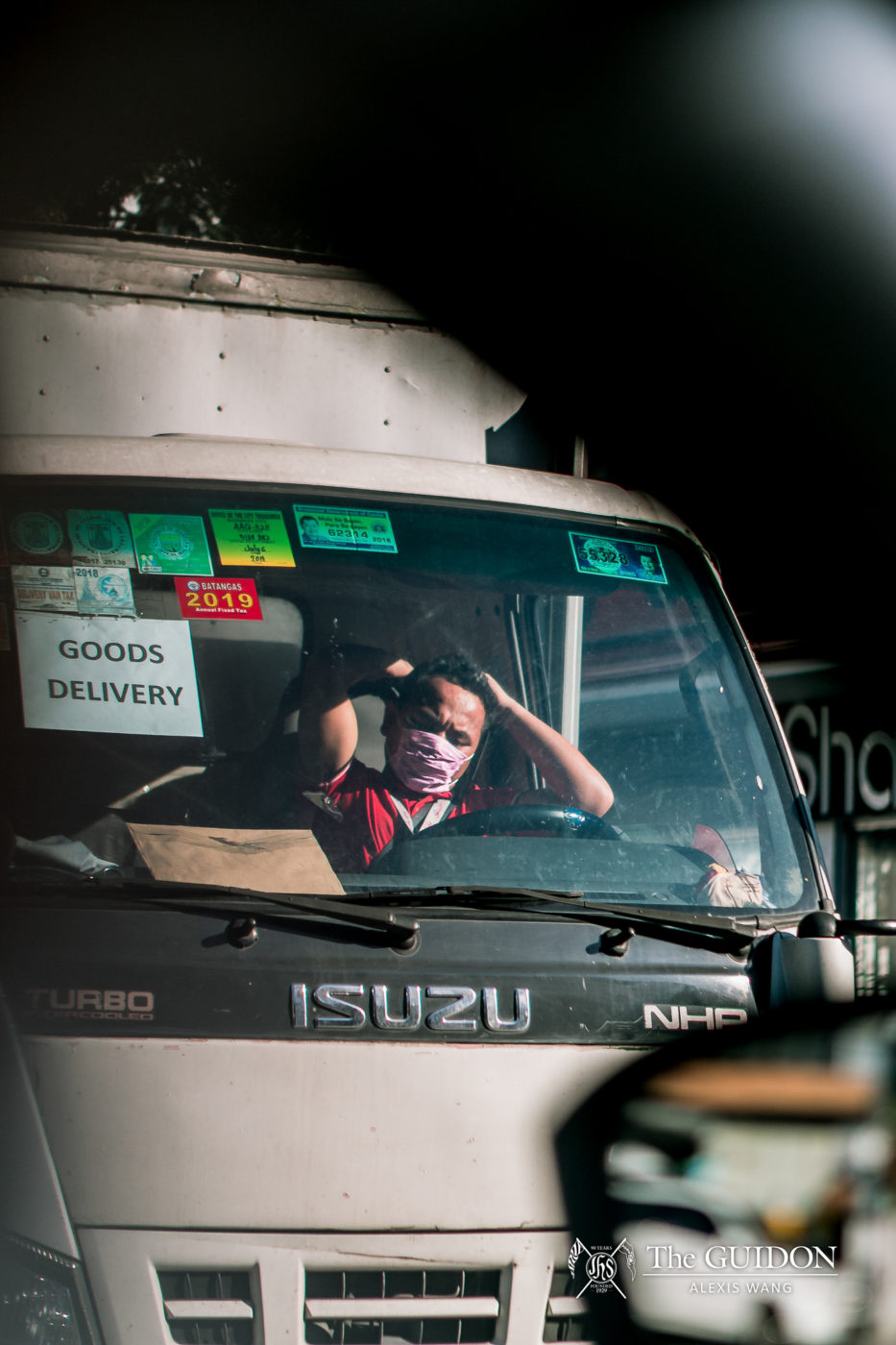The Philippine government has enforced a total lockdown, formally known as the Enhanced Community Quarantine (ECQ), in Metro Manila and in other affected provinces in an attempt to mitigate the spread of COVID-19. Livelihoods have been put to a halt with no clear end in sight, causing many citizens to wonder how to sustain their basic needs without steady income. As the over-crowded capital adjusts to a modified ECQ, citizens are now challenged to operate under a new way of life. The GUIDON Photos Staff has sought out to visually document how Filipinos have adapted to this “new normal.”
Editor’s Note: All photographs featured in this piece were taken within the confines of The GUIDON Photos Staffers’ respective homes or during essential trips to the supermarket. All public health protocols and social distancing guidelines were strictly observed.
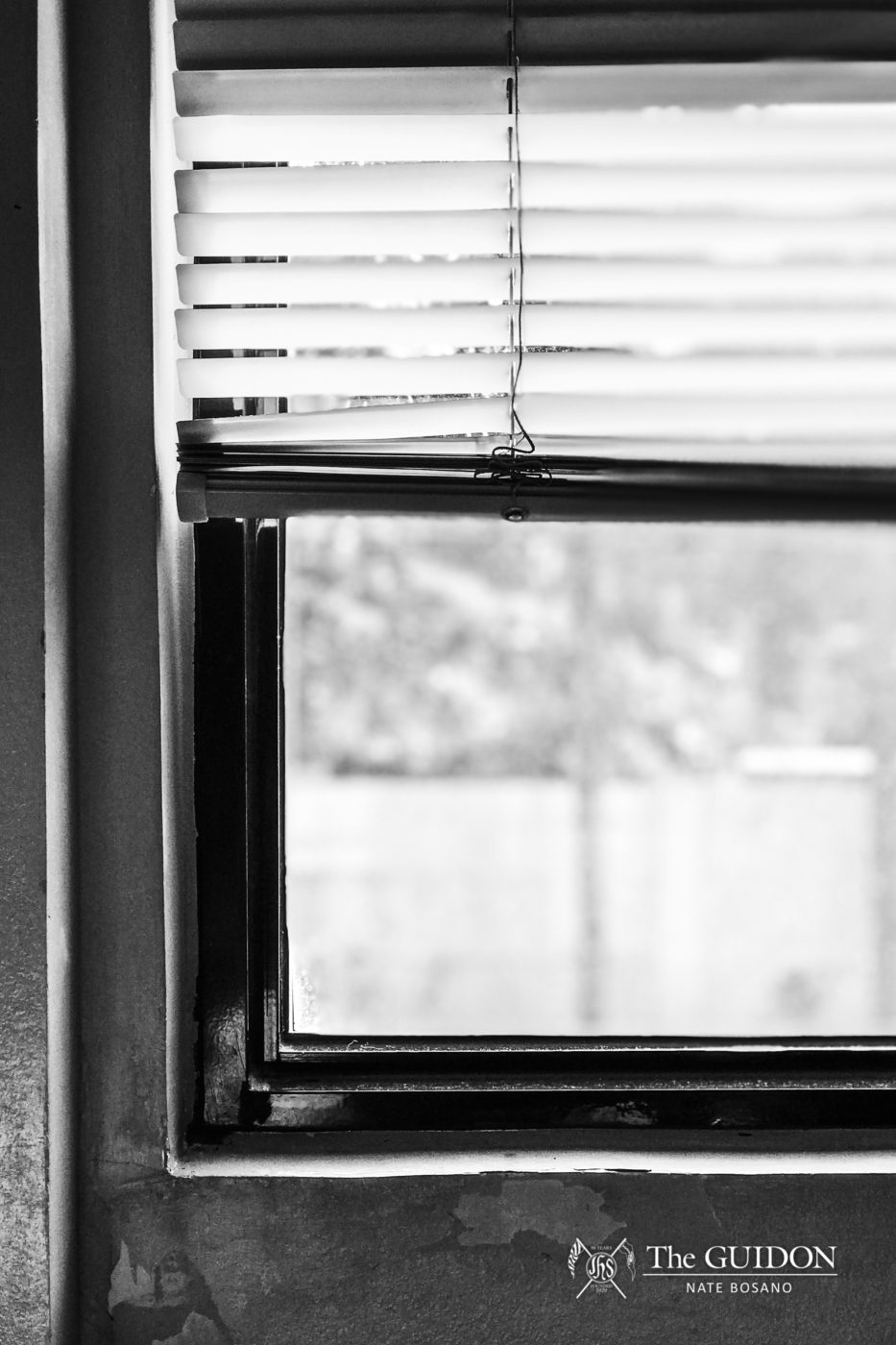
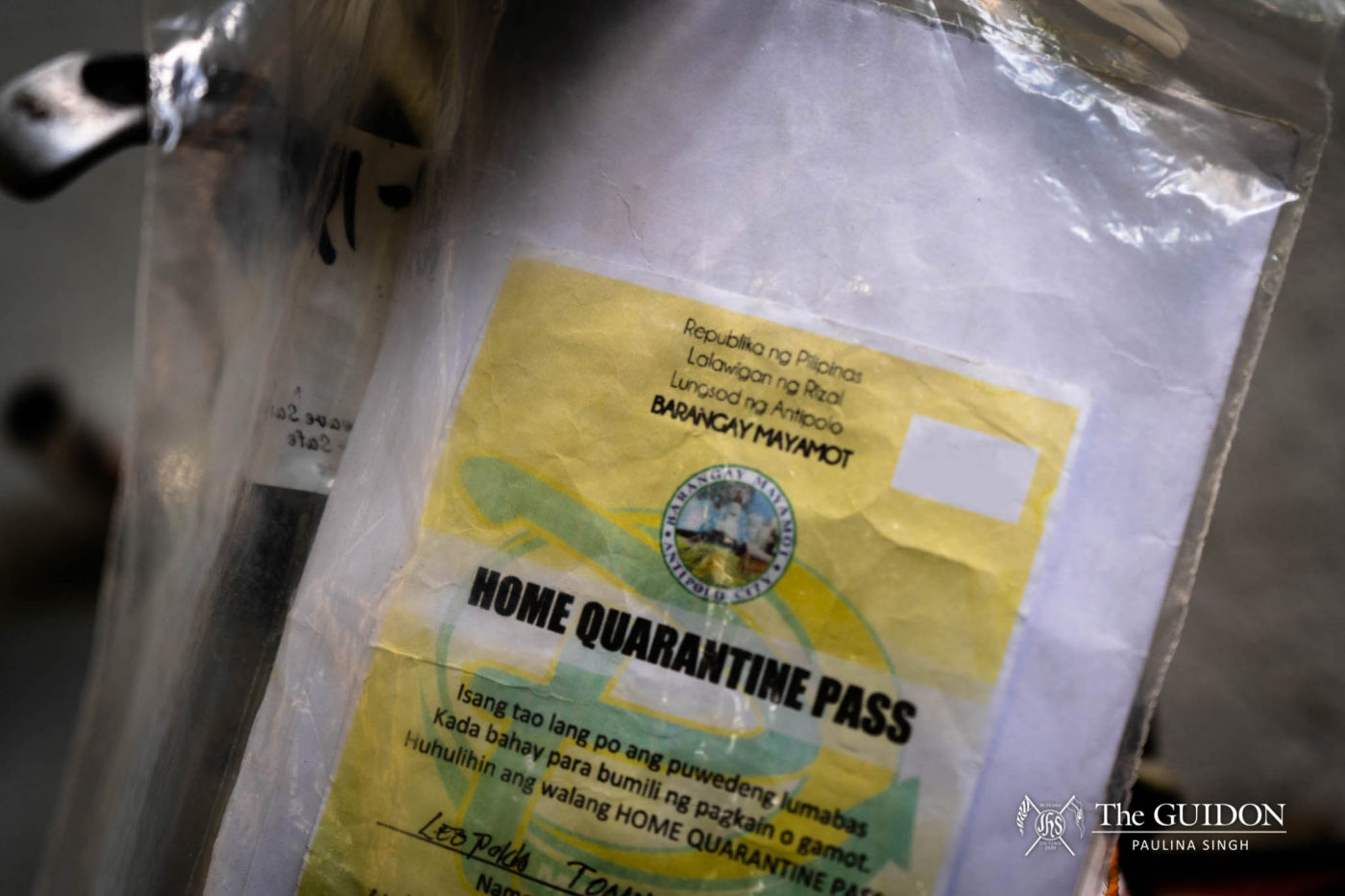
To quell the spread of the virus, Local Government Units (LGUs) enforced a one member per household policy for those who are allowed to leave their homes to buy basic commodities. Going outside without a quarantine pass is considered a breach of ECQ guidelines. Reports have shown that some policemen beat, shoot, or jail those who allegedly breach these protocols.
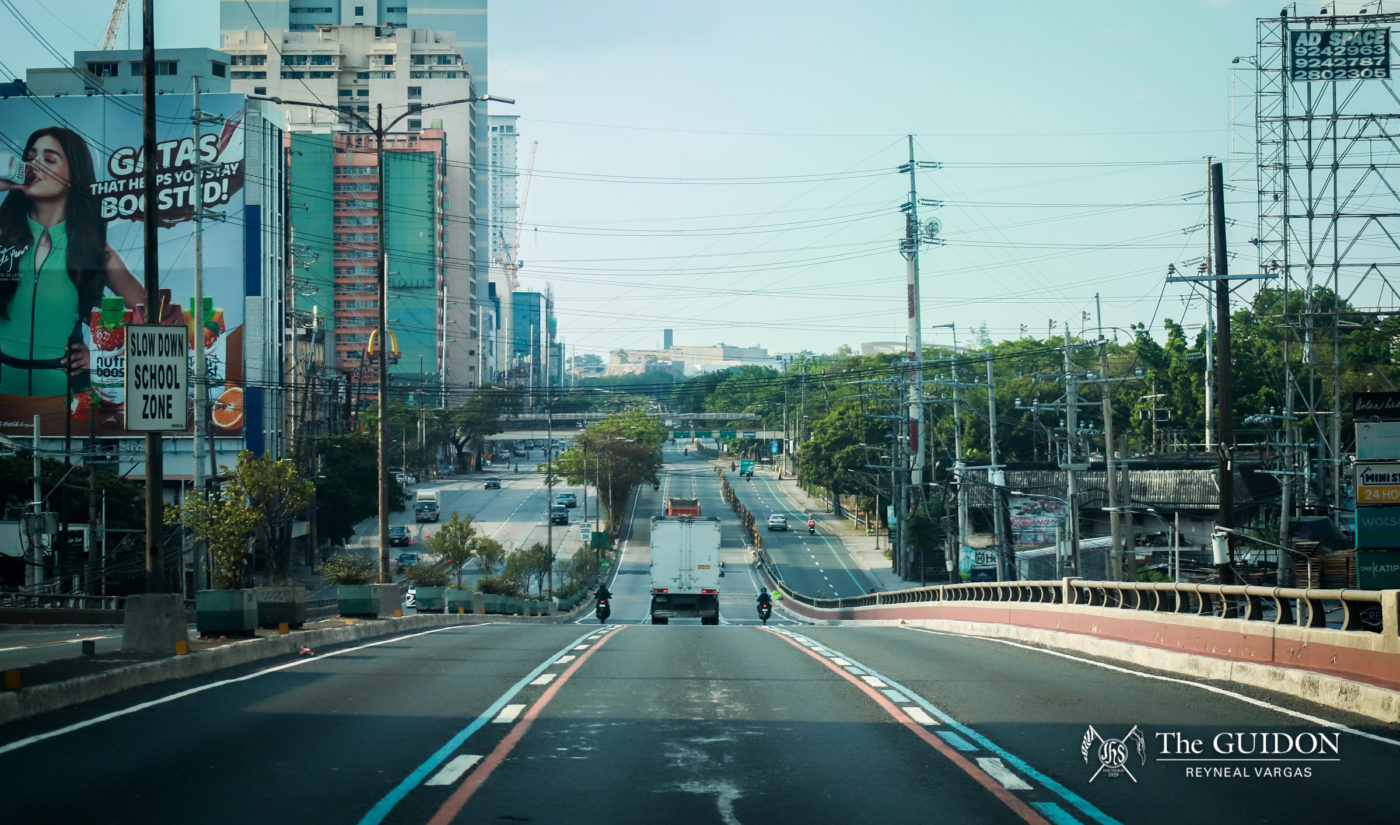
What was once bustling with cars and commuters, Katipunan Avenue in Quezon City has become significantly less congested due to the strict quarantine protocols, and the suspension of school and office operations.
Despite the ongoing lockdown, truck drivers, who are deemed as essential workers, continue to transport goods throughout Metro Manila.
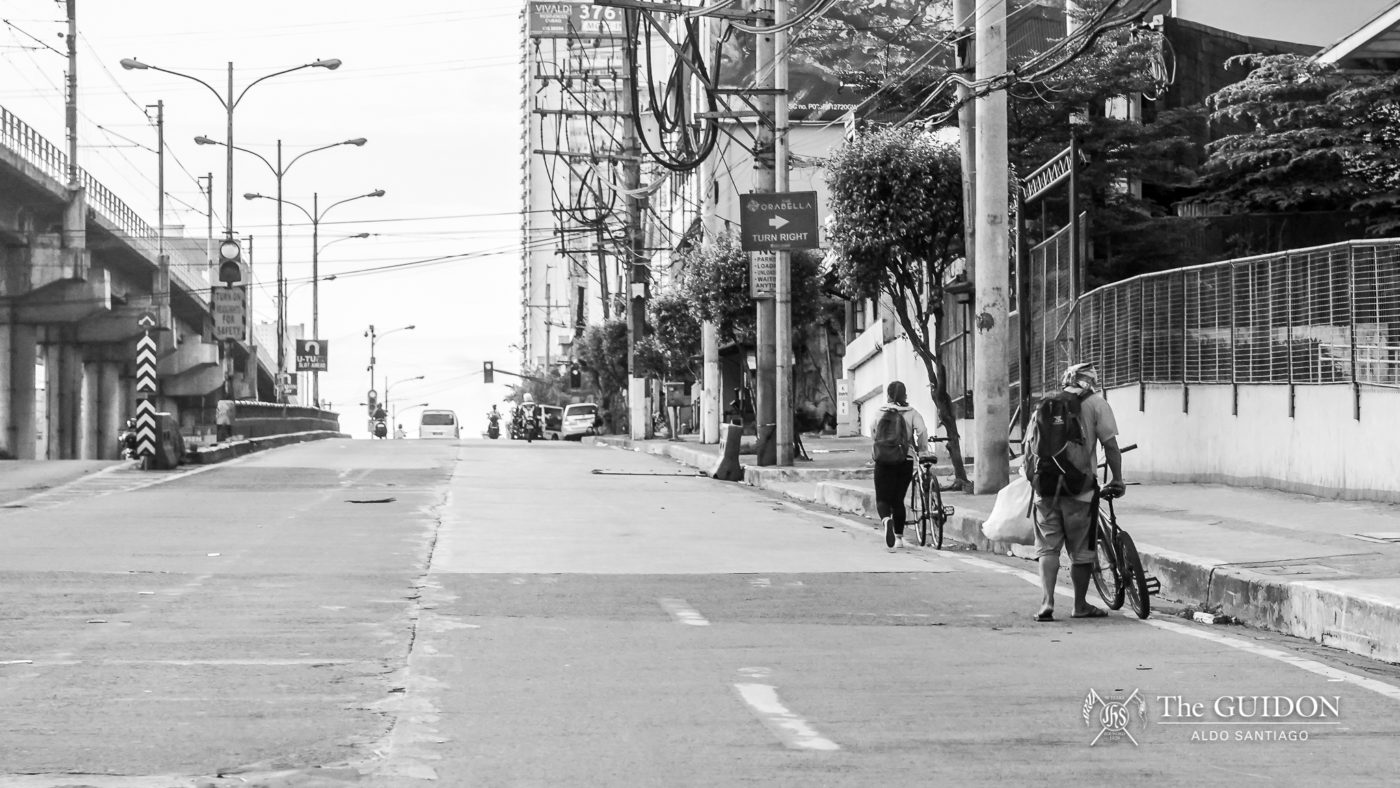
Bicycle riders along EDSA stop on the side of the road to catch their breaths before resuming their travel towards their destinations.
The Department of Transportation (DOTr) declared the suspension of virtually all mass public transportation to, from, and within Metro Manila. This has affected Filipinos who rely on commuting to get to work. Some have been reported to walk or bike for hours just to reach their destination.
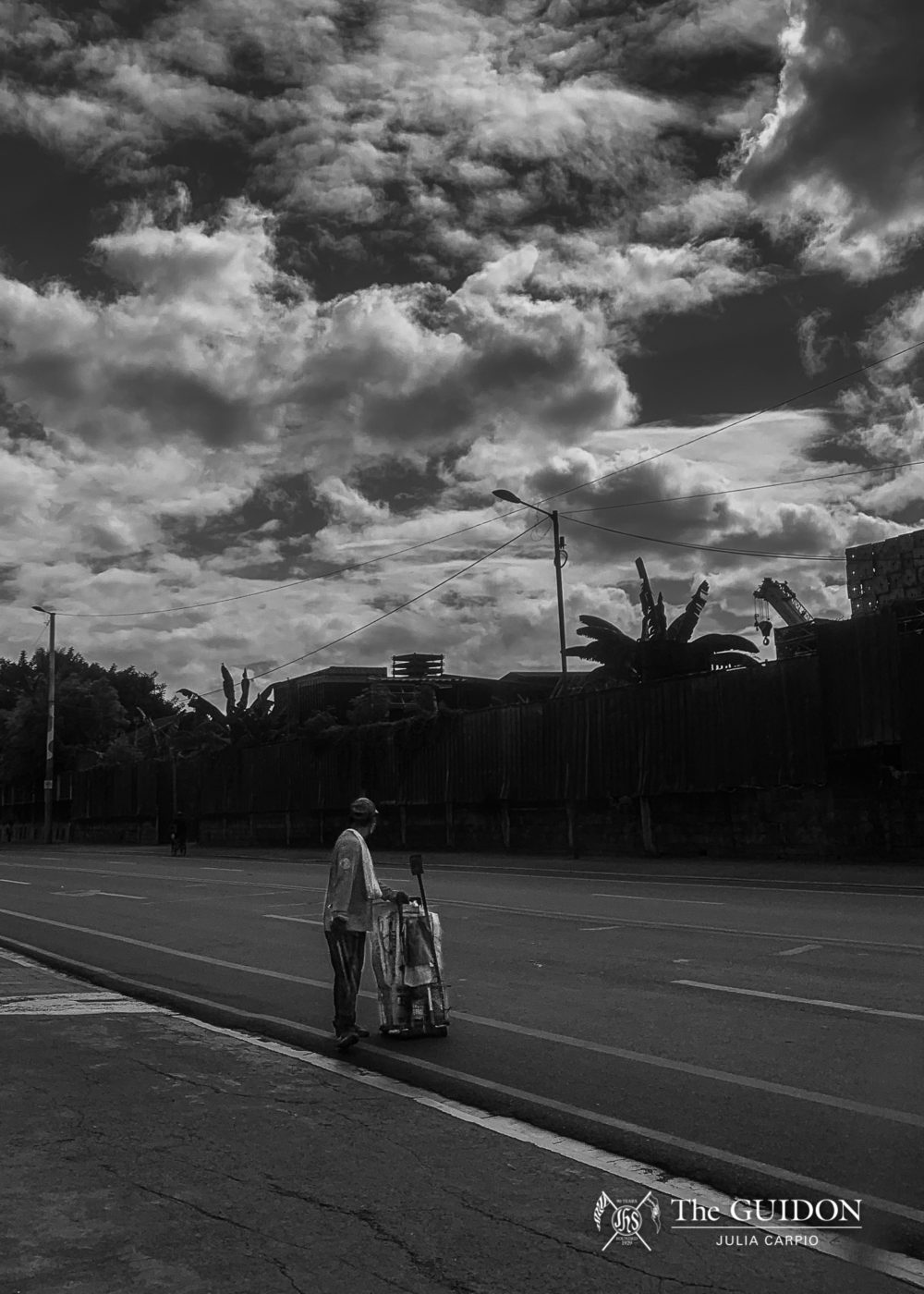
A lone street sweeper roams the usually busy road of Mayor Gil Fernando Avenue in Marikina City.
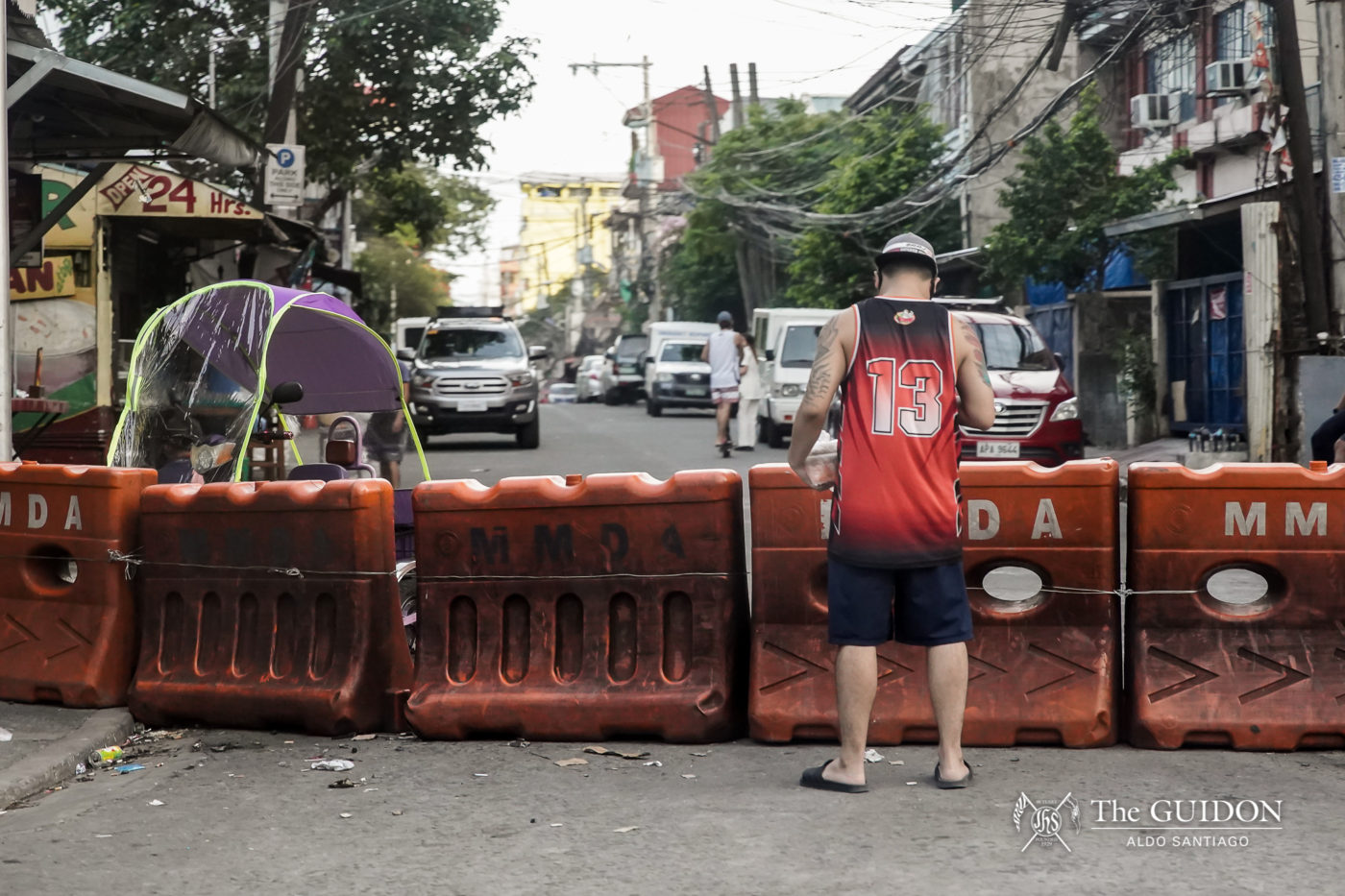
A man patiently waits with his delivery package outside a blocked street in 14th Avenue, Cubao. Barriers have been set up along multiple streets across Metro Manila to provide common routes and enforce safety measures for residents in the area.
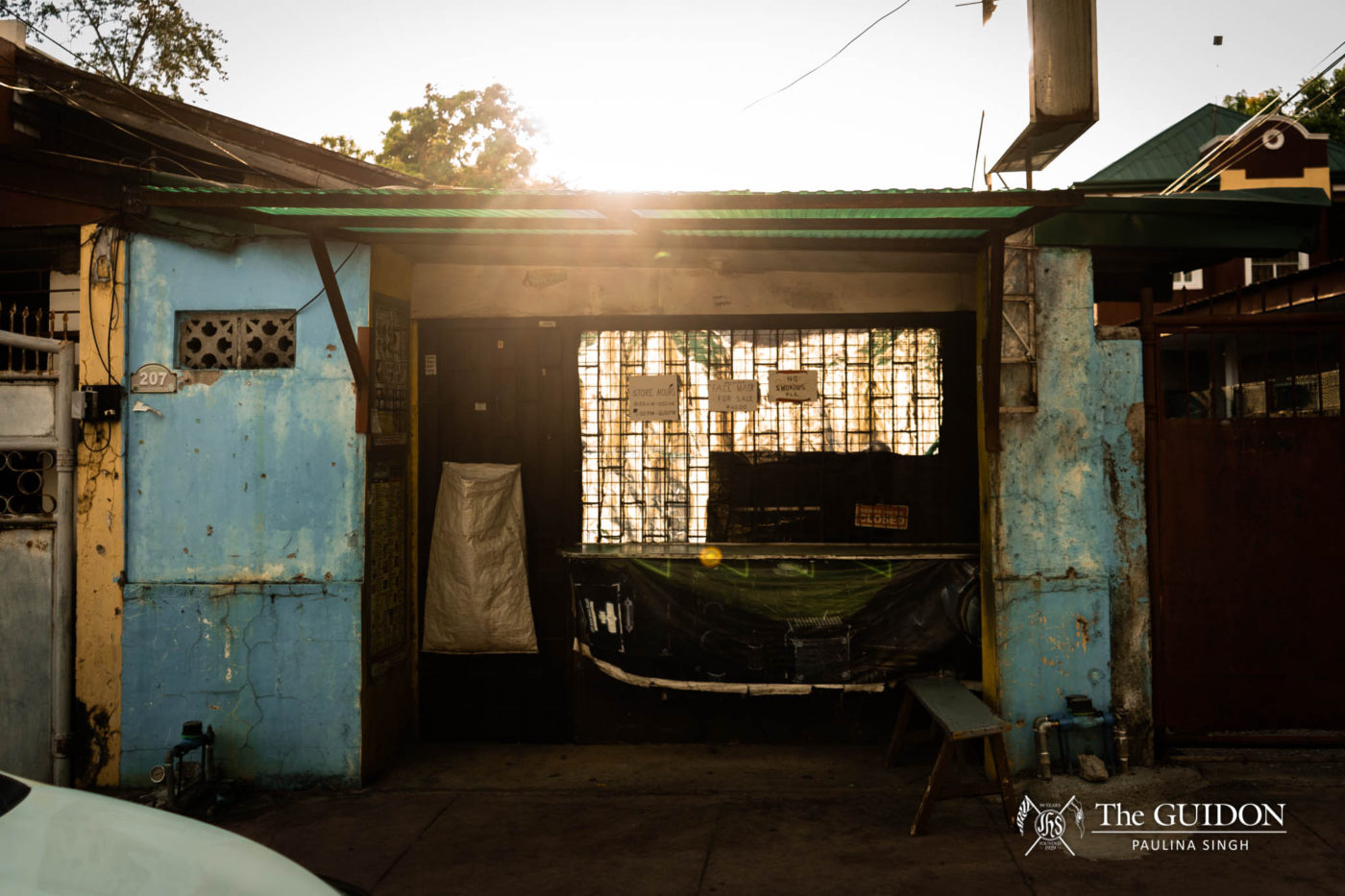
Small-scale businesses, such as sari-sari stores, are among those that have received the brunt of the economic crisis caused by the pandemic. Government programs, such as cash assistance for micro, small, and medium enterprises, and a grace period on loans, have been vital in keeping the stores afloat. The lack of supplies and financial inviability for some store owners have forced them to cease operations during the ECQ.
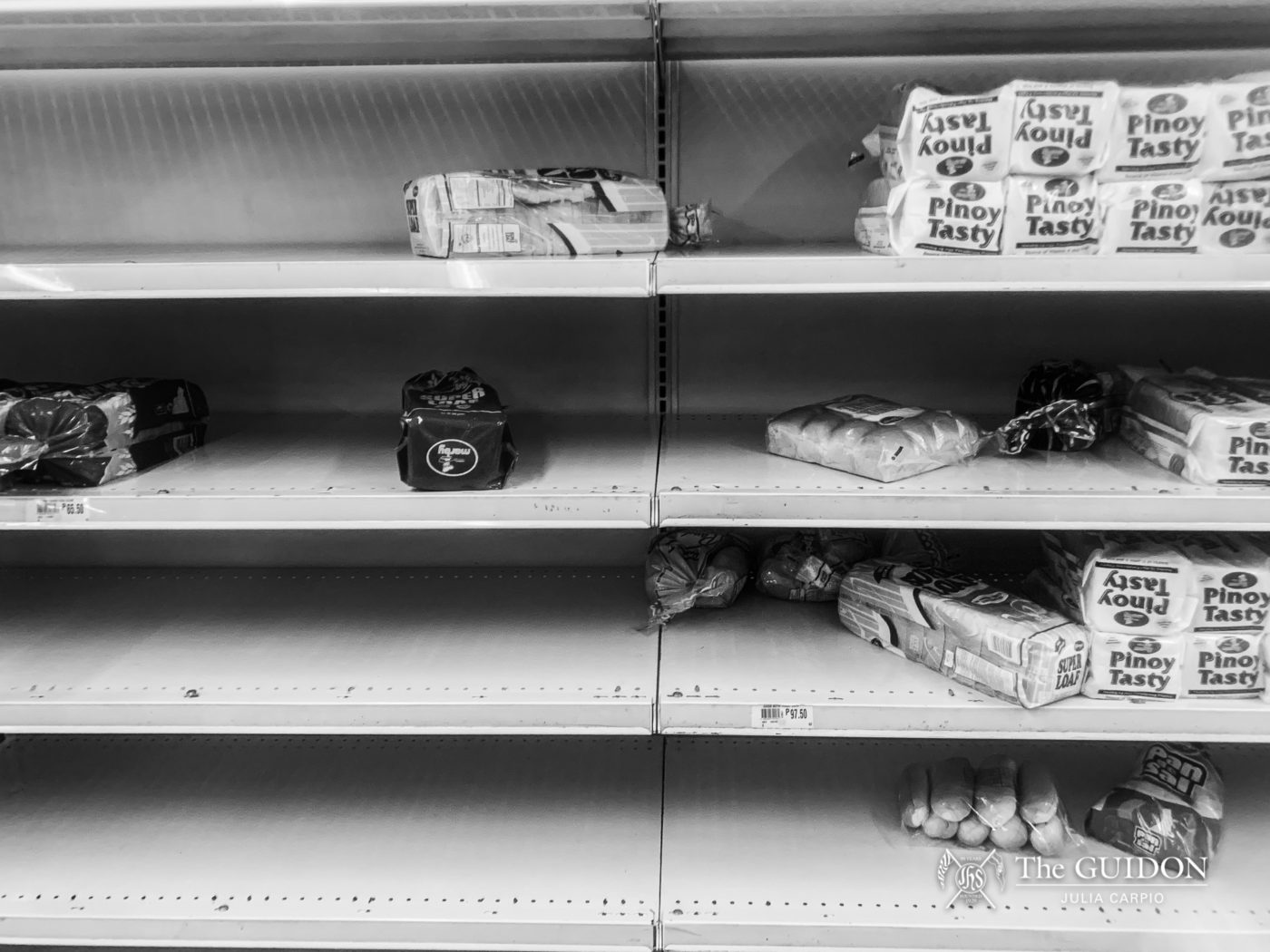
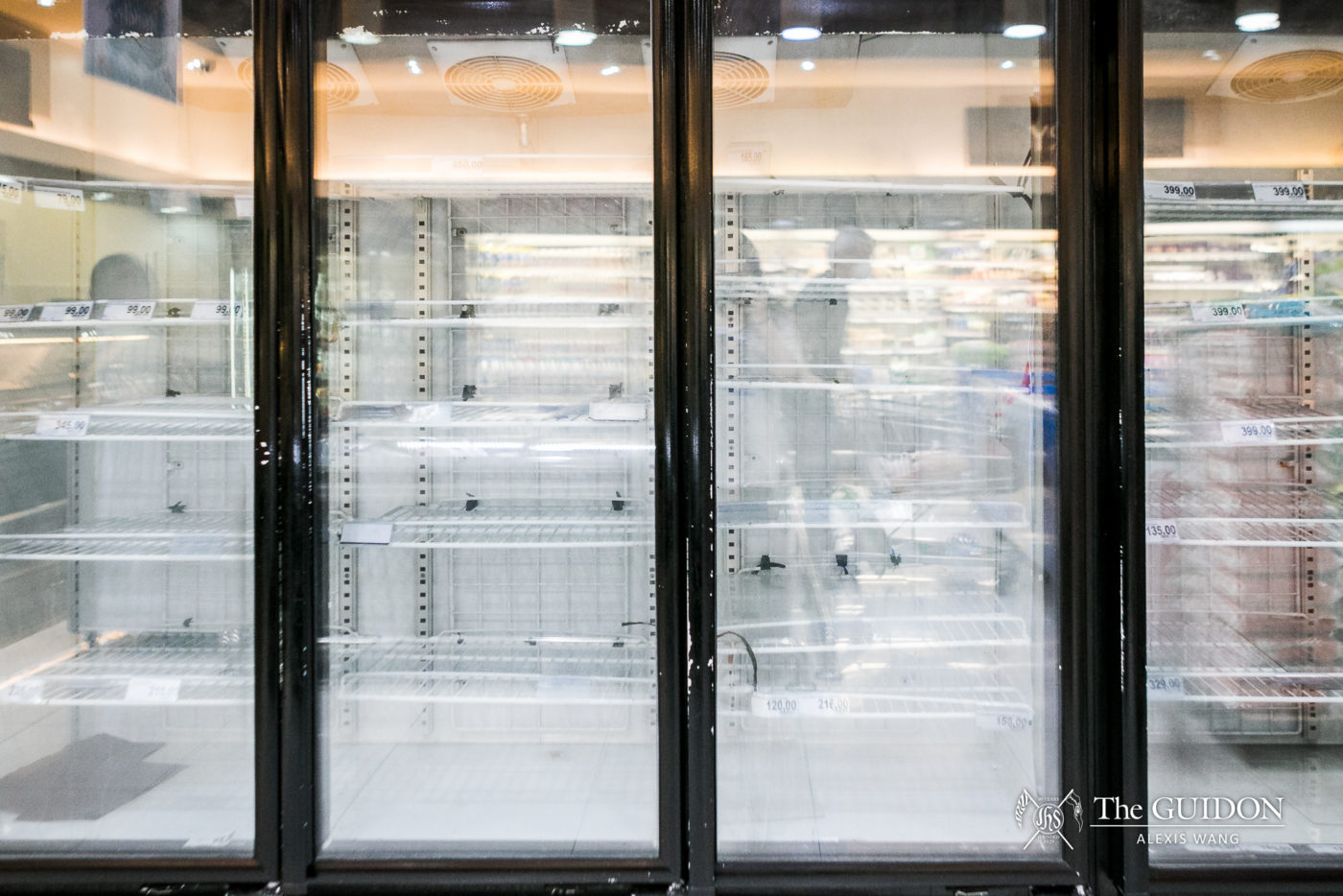
Food supplies quickly dwindle in grocery stores despite advisories against hoarding. The high-volume consumption and the limited production and deliveries during the ECQ have made it difficult to fully restock supplies.
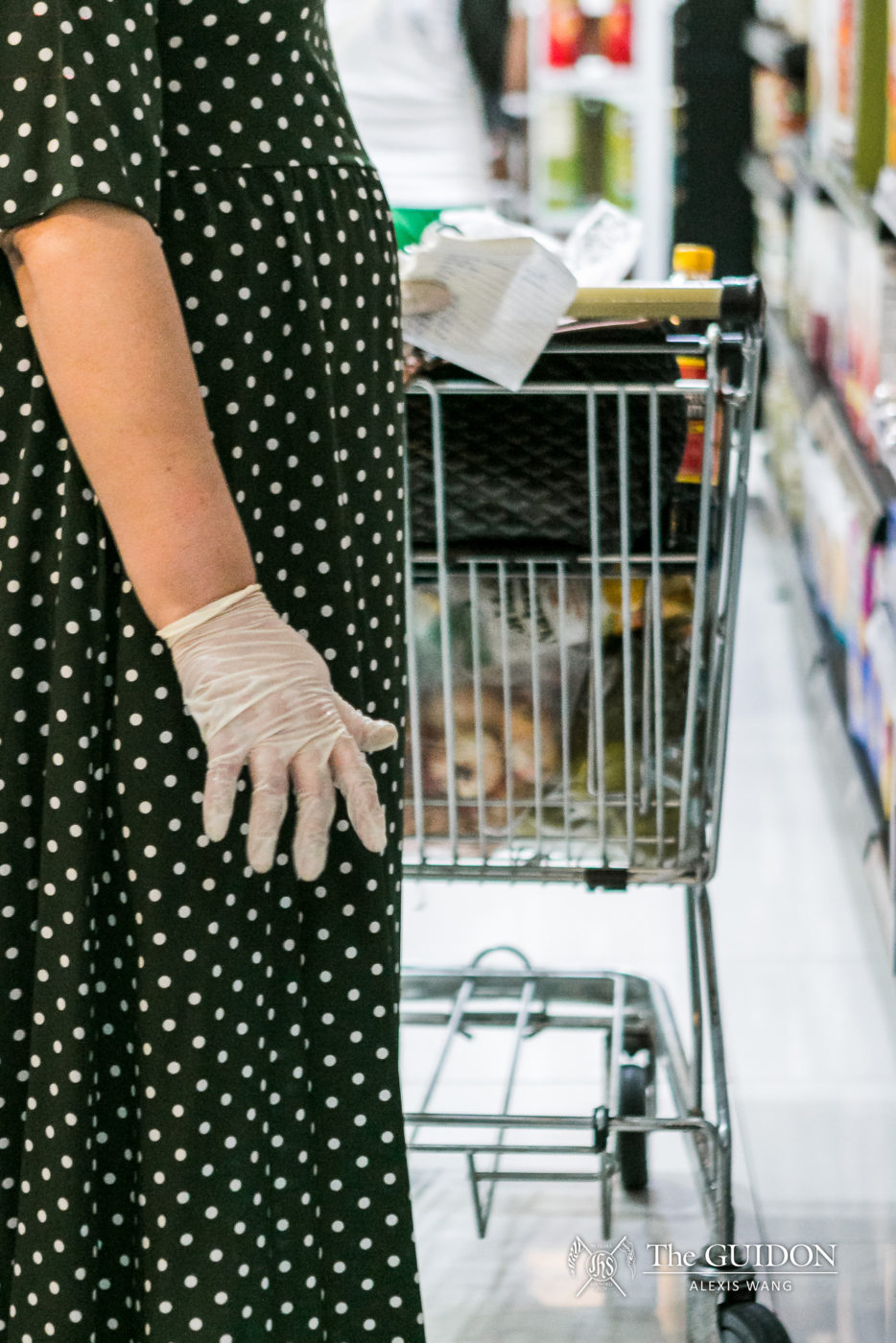
The government has considered grocery shopping as an essential activity permitted during the ECQ. Shoppers have become more vigilant by taking precautionary measures like wearing disposable gloves while purchasing their essentials to avoid direct exposure to potentially infected surfaces.
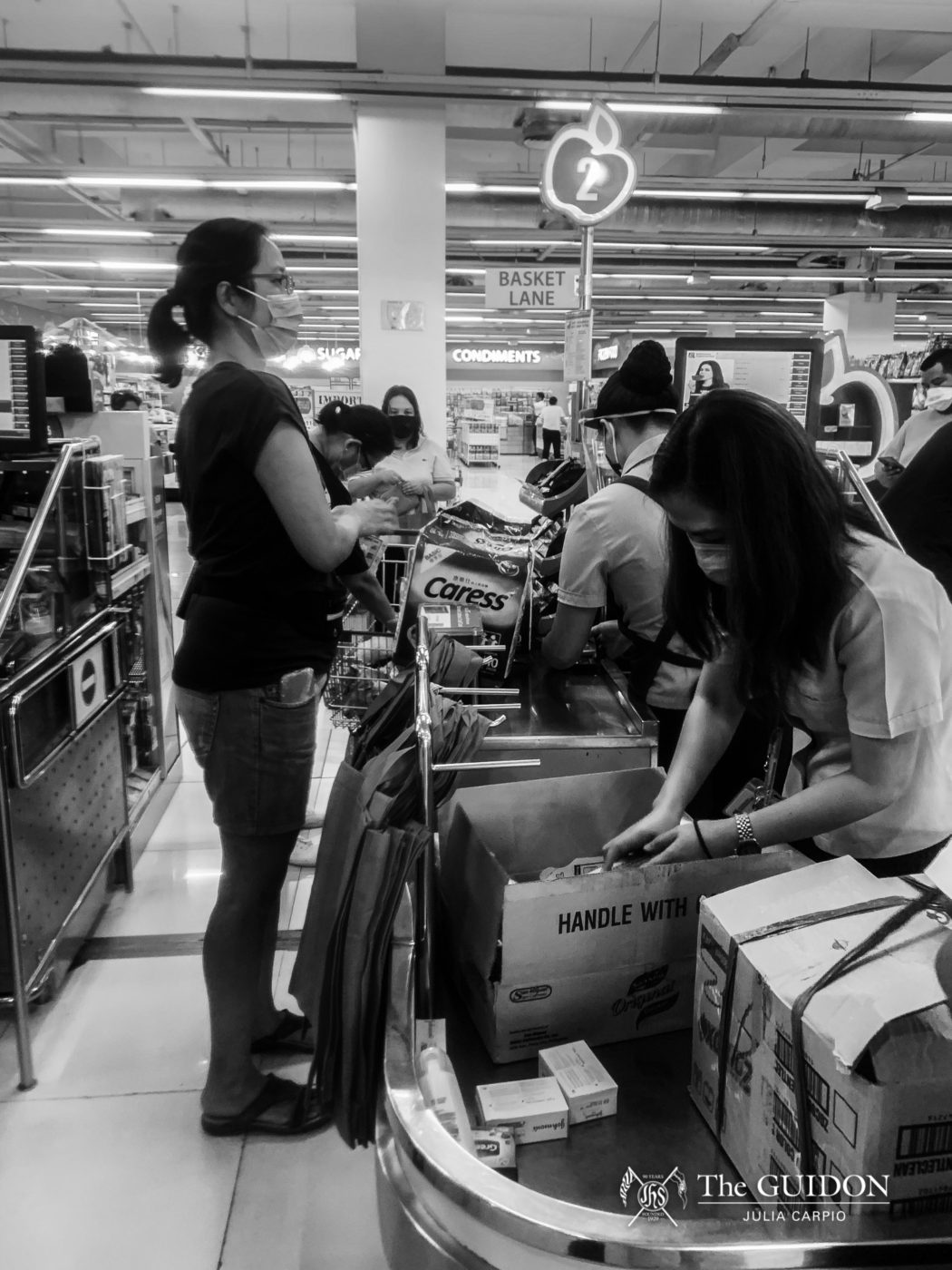
Grocery employees and shoppers alike protect themselves, and each other, by wearing face masks or face shields throughout Robinsons Bluewave in Marikina City.
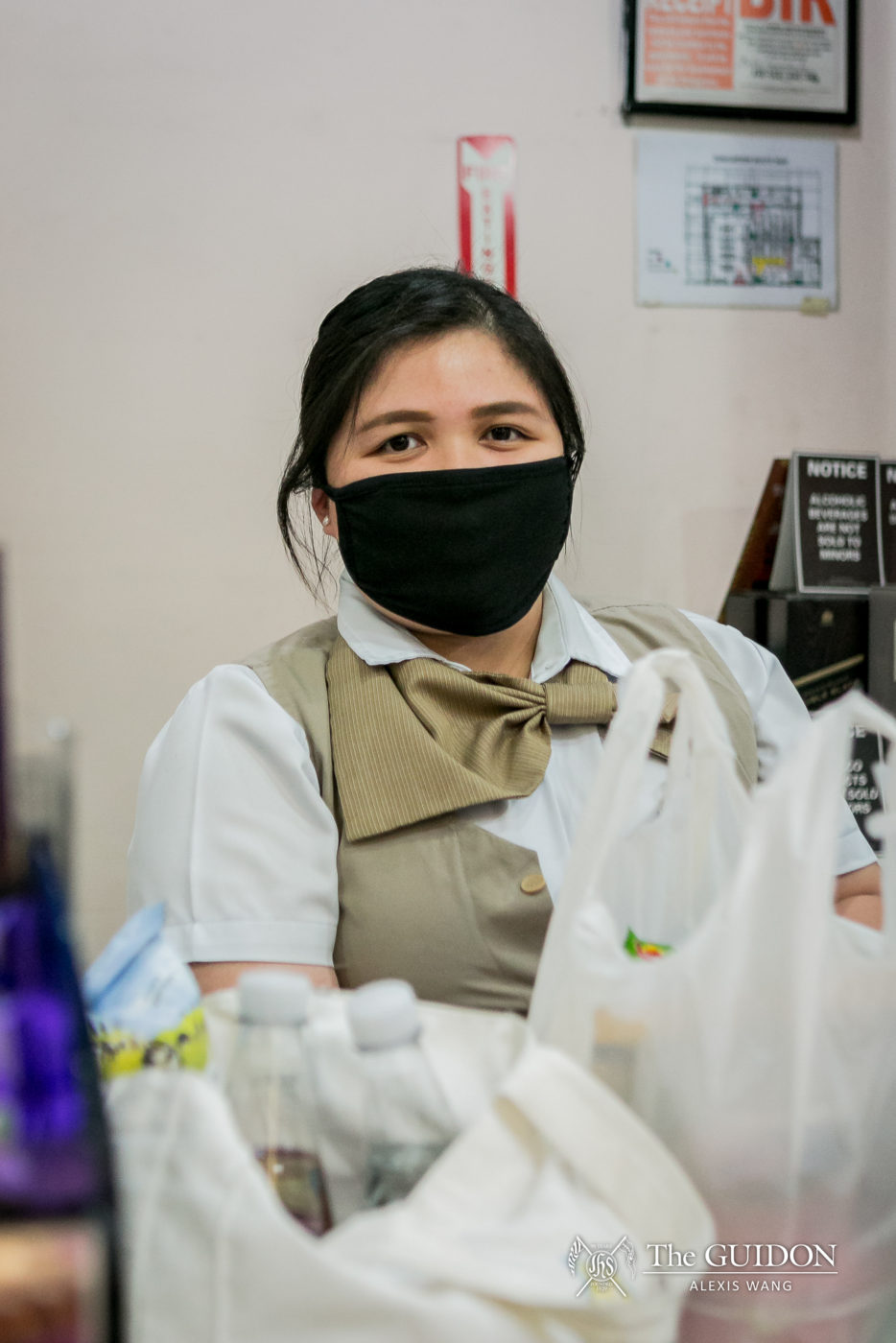
Grocery cashier personnel, who serve on the front lines of the pandemic, handle dozens of goods and essentials daily despite possible health risks and exposure to the virus. Many workers from the essentials sector continue working in order to make ends meet amid the economic crisis that has rendered millions unemployed. The COVID-19 pandemic has also prompted discourse on how essential workers should be justly treated and compensated.
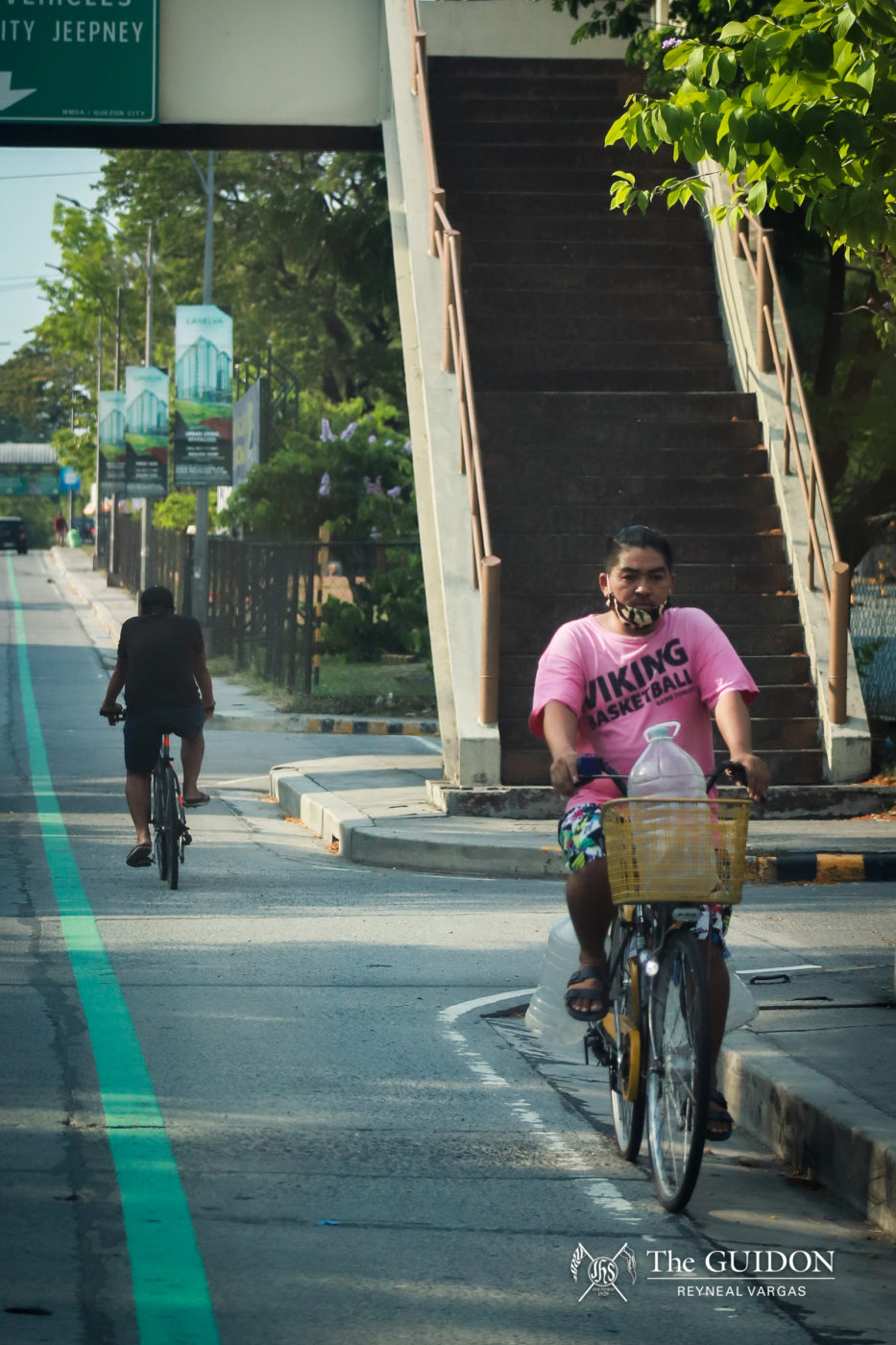
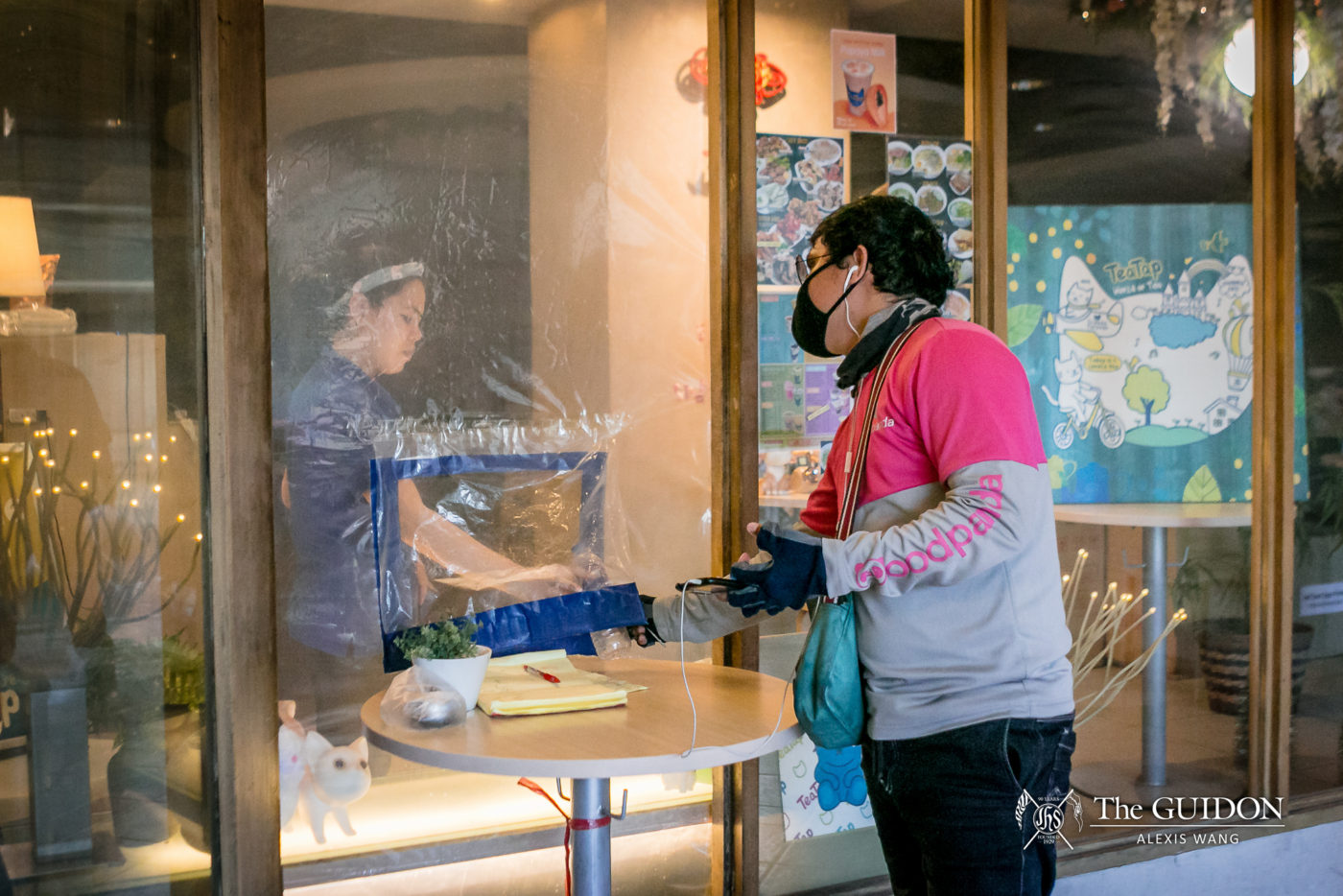
Safety and protection measures go beyond face masks and gloves. Compromises, such as make-shift plastic windows, are one of the solutions to limit face-to-face interactions between people such as food delivery services and restaurant personnel. Wrapping frequently touched items, such as call bells, in plastic is another way to maintain good sanitation.
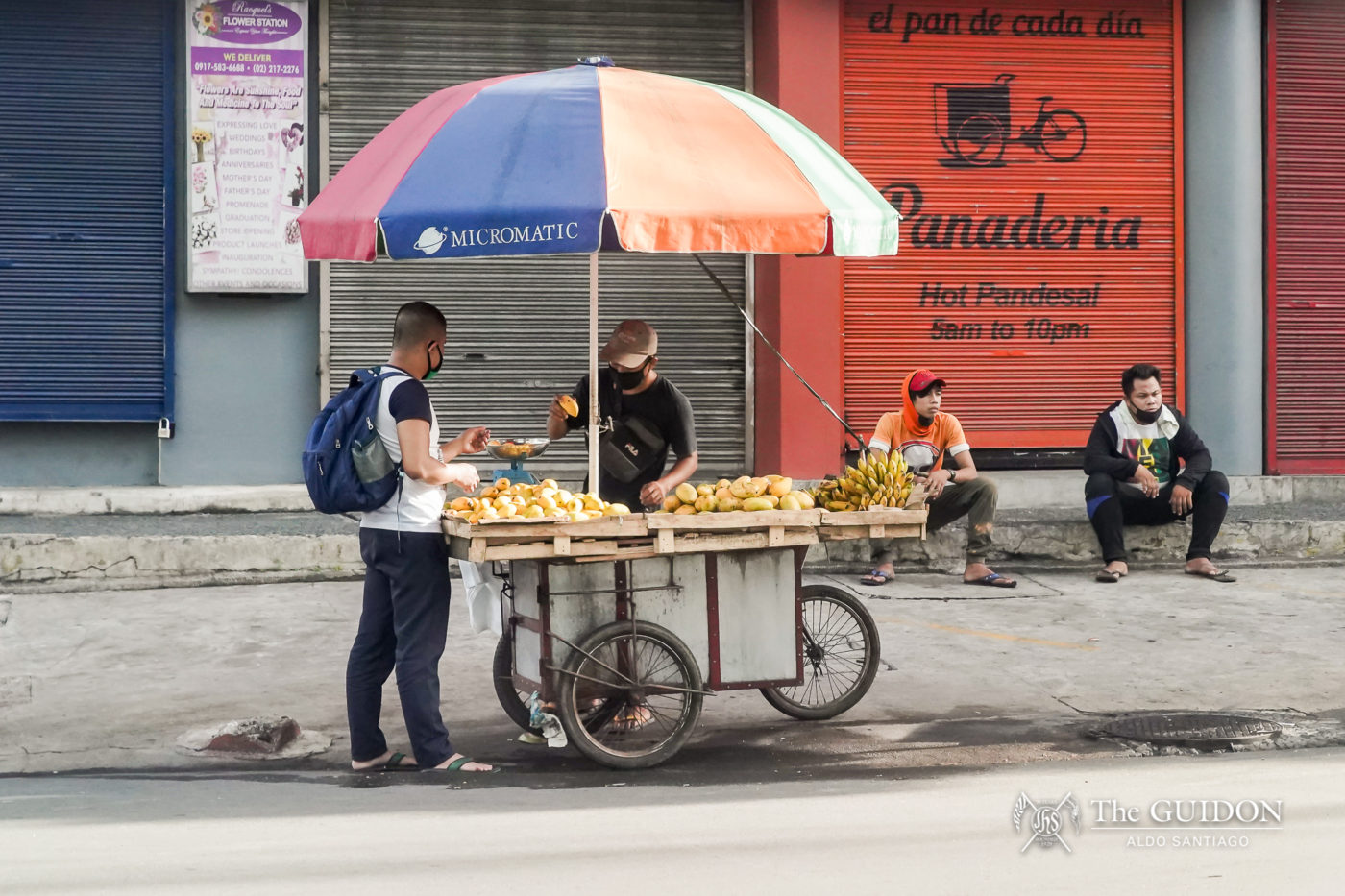
The lack of all encompassing safety measures from the government pose great health risks to street vendors. Nevertheless, they must continue to operate in order to sustain their family’s needs.
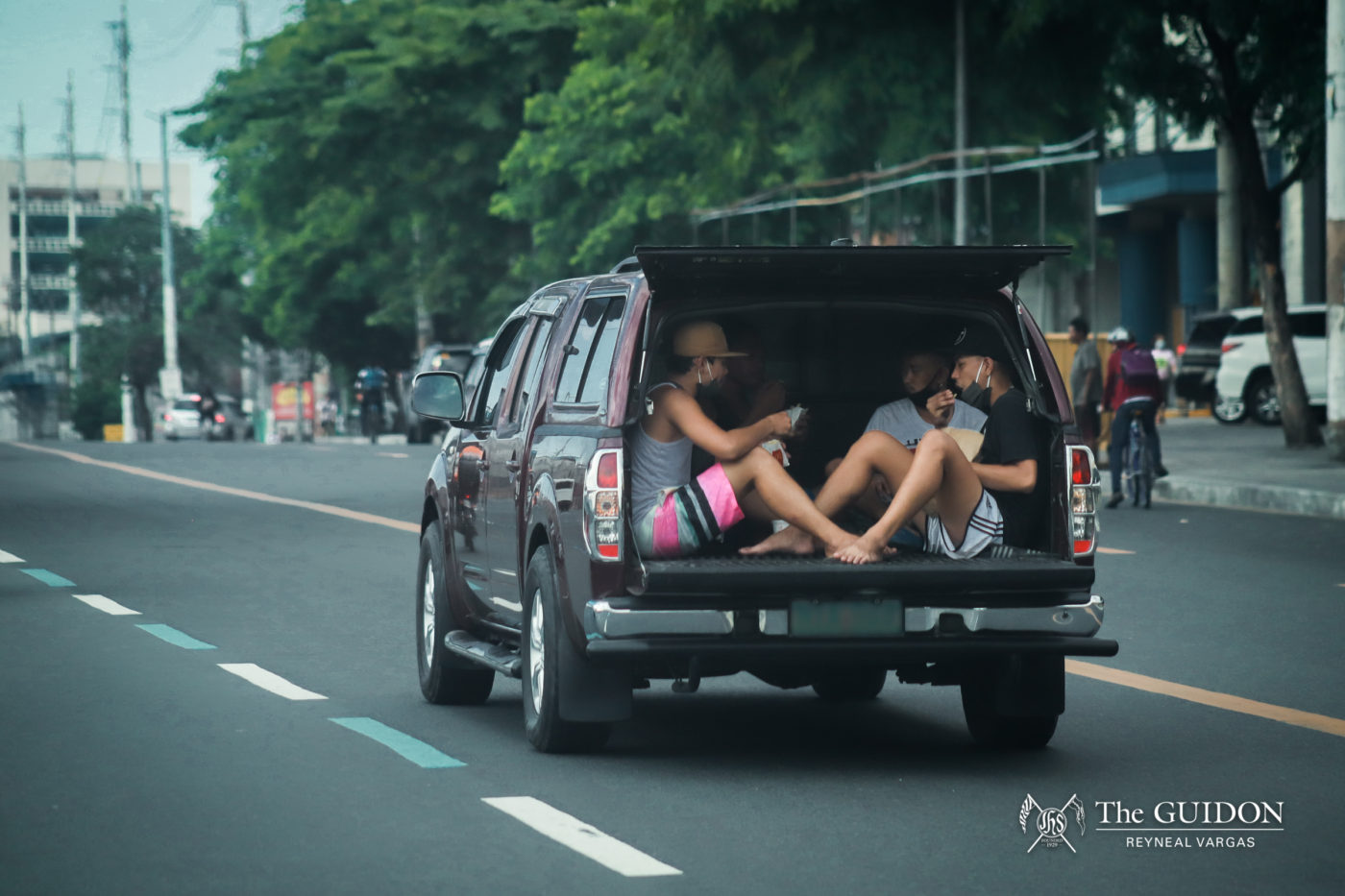
Multiple passengers ride a single vehicle despite social distancing protocols from the DOTr regarding maximum loads on different modes of transportation.
While most businesses have been brought to a standstill, the logistics industry has seen a significant surge in demand.
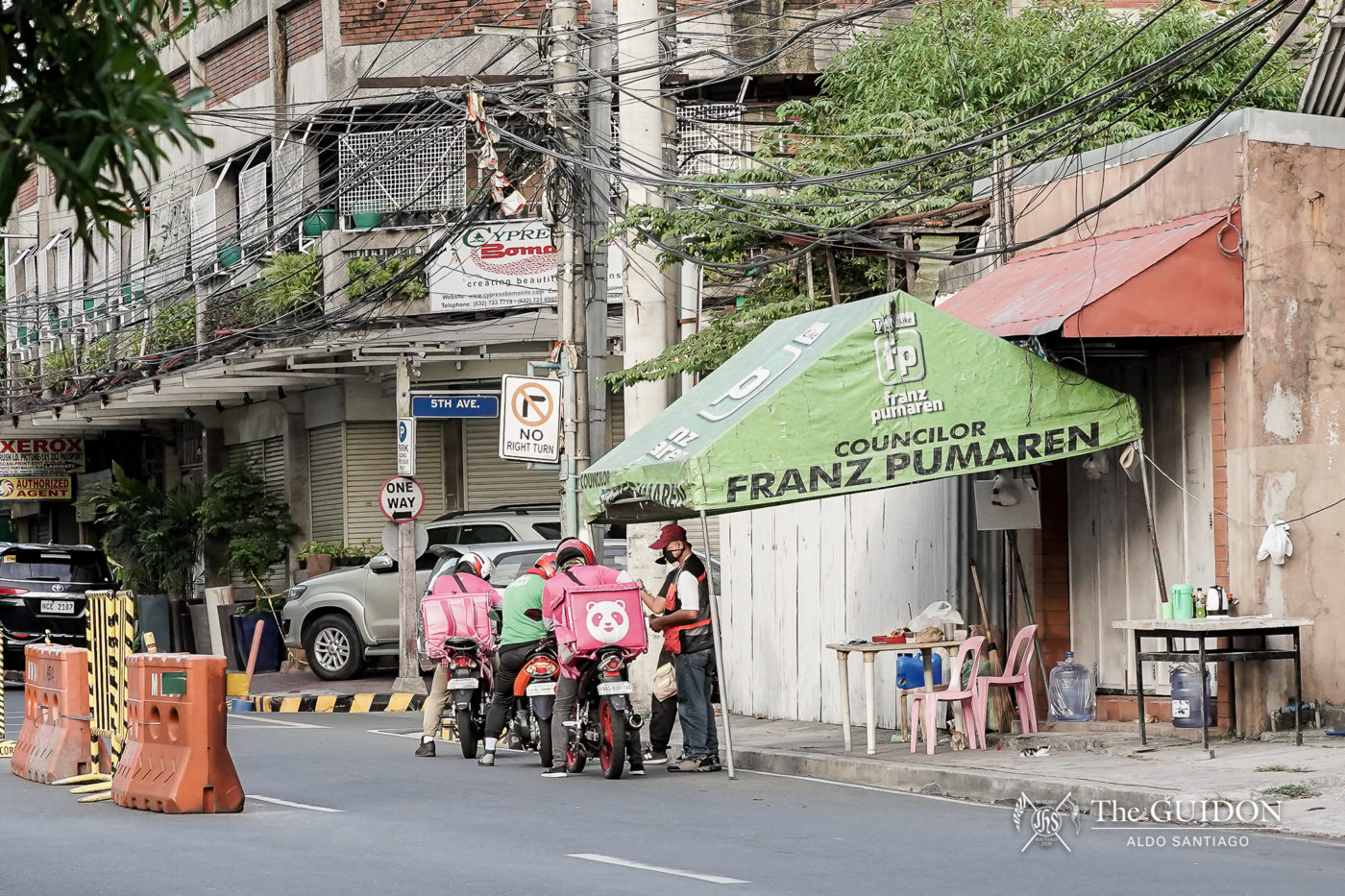
Checkpoints have been set up at every barangay for the past two months to monitor movement and detect possible cases of COVID-19. These checkpoints also serve as deterrents to non-essential travel since fines are imposed on those who violate the ECQ protocols.
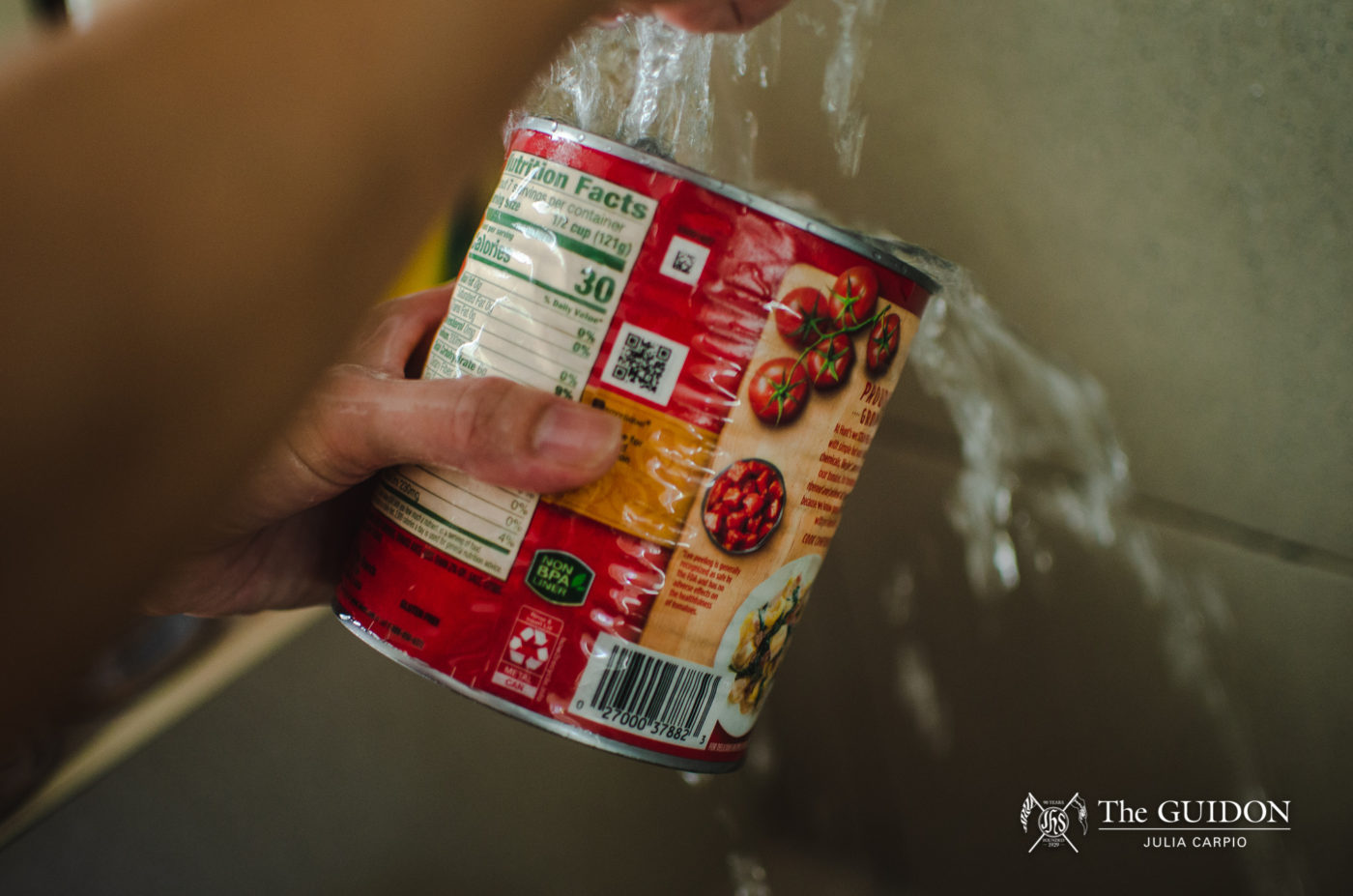
Back at home, washing and sanitizing items and other non-perishables that are bought or delivered from outside have become part of the norm due to fears of contracting the virus.
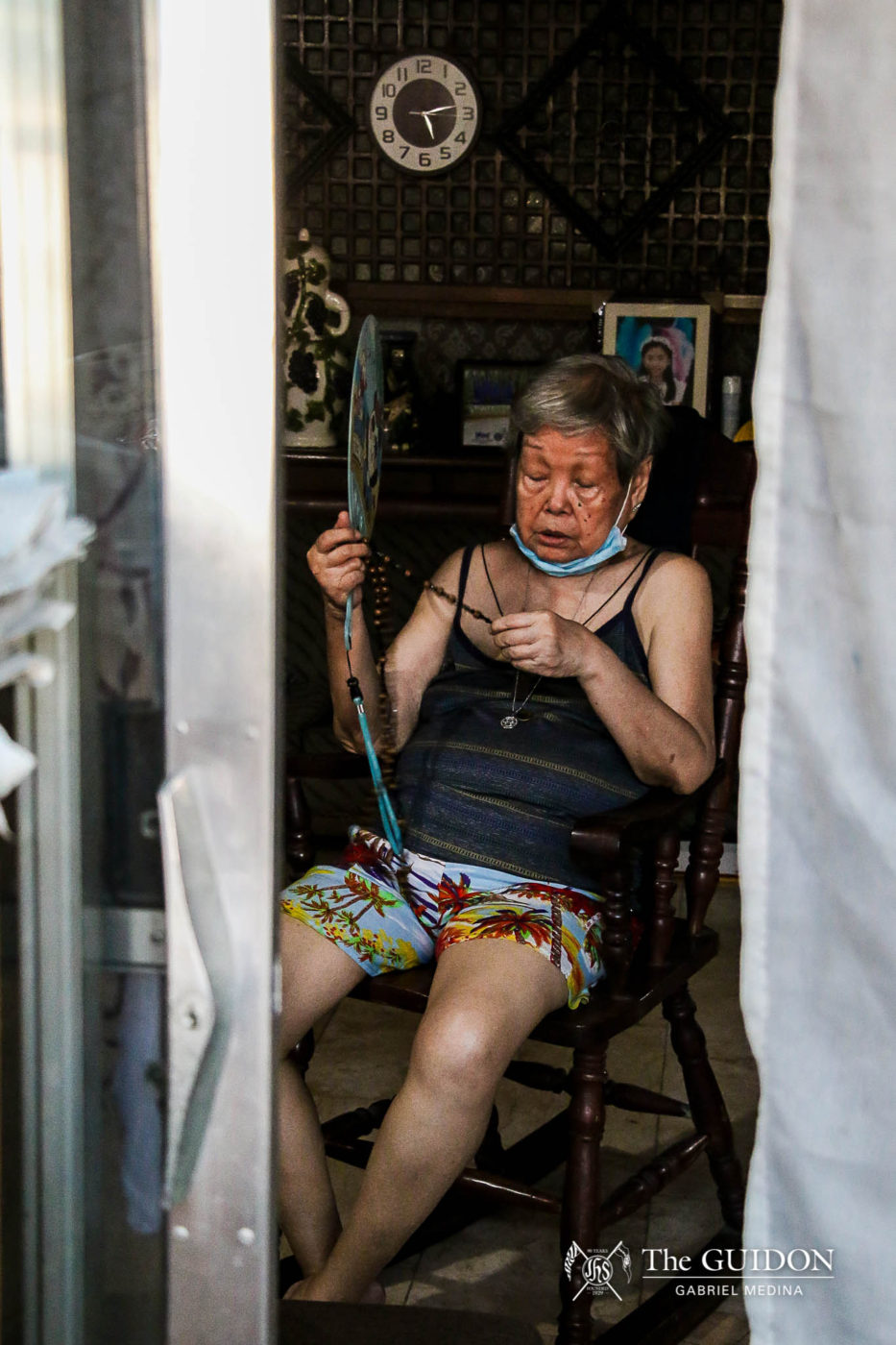
For Memia A. Joven, praying the rosary and novena for the safety of her family, those on the front lines, and an end to this crisis has become part of her daily routine at home.
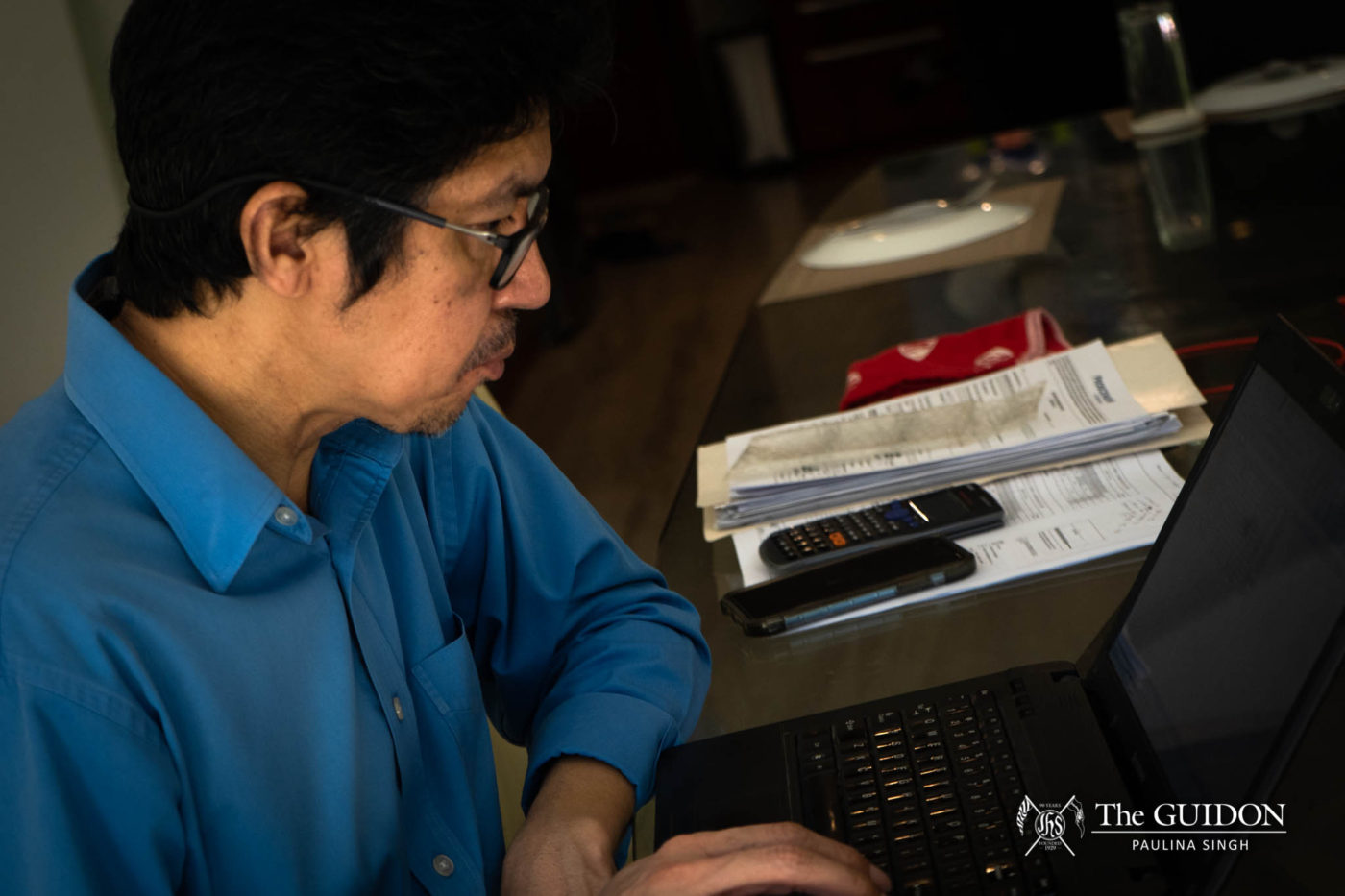
For most employees from non-essential sectors, business is as usual under the work-from-home scheme as per the Philippine Inter-Agency Task Force on Emerging Infectious Diseases’ recommendation. Digital workplace solutions such as Zoom and Google Suite have become integral to facilitate business meetings.
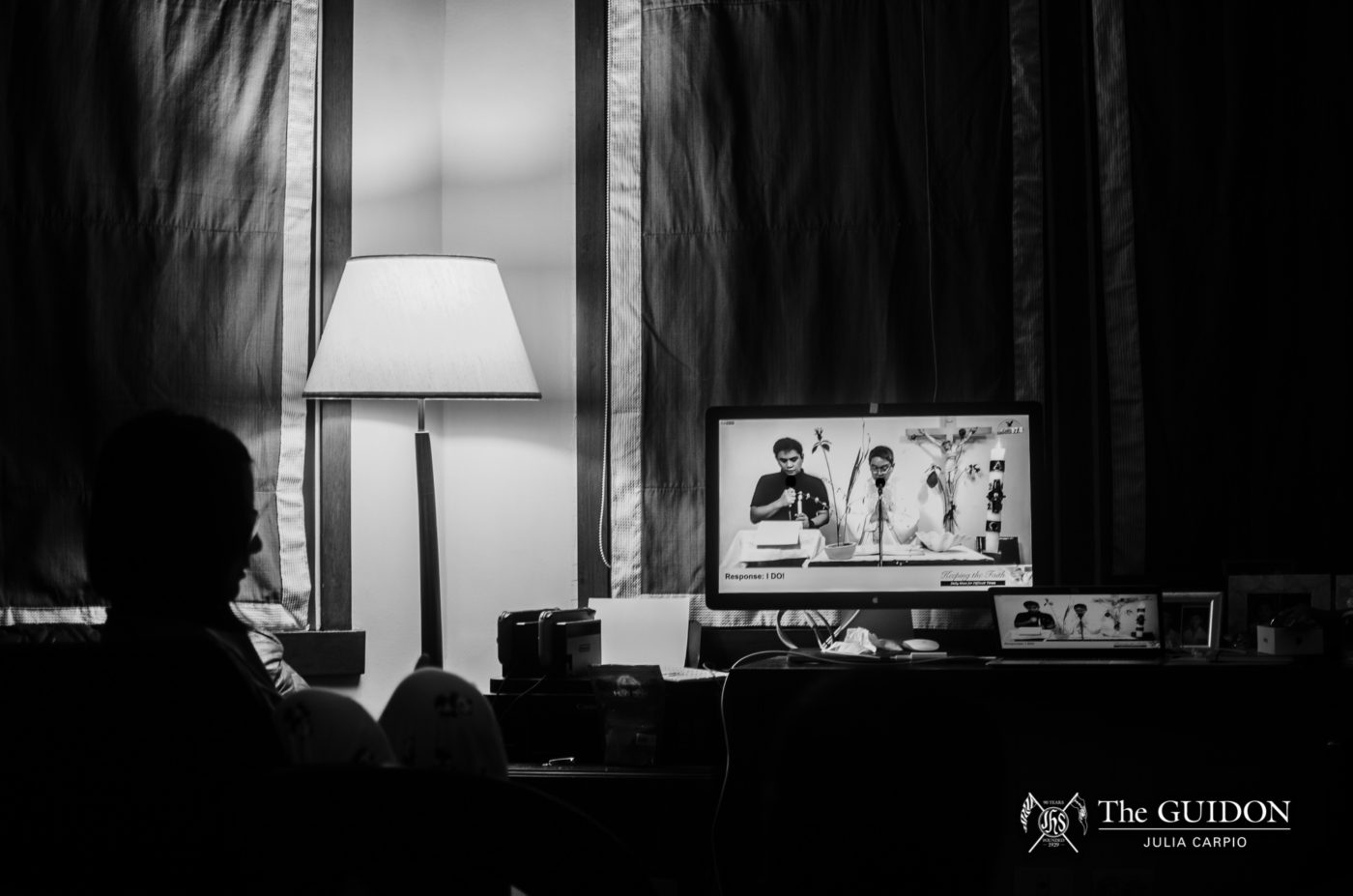
With the ongoing ban on large gatherings, church goers now hear mass online rather than inside churches. This year’s Holy Week celebrations were no exception due to the extraordinary circumstances brought about by the pandemic.
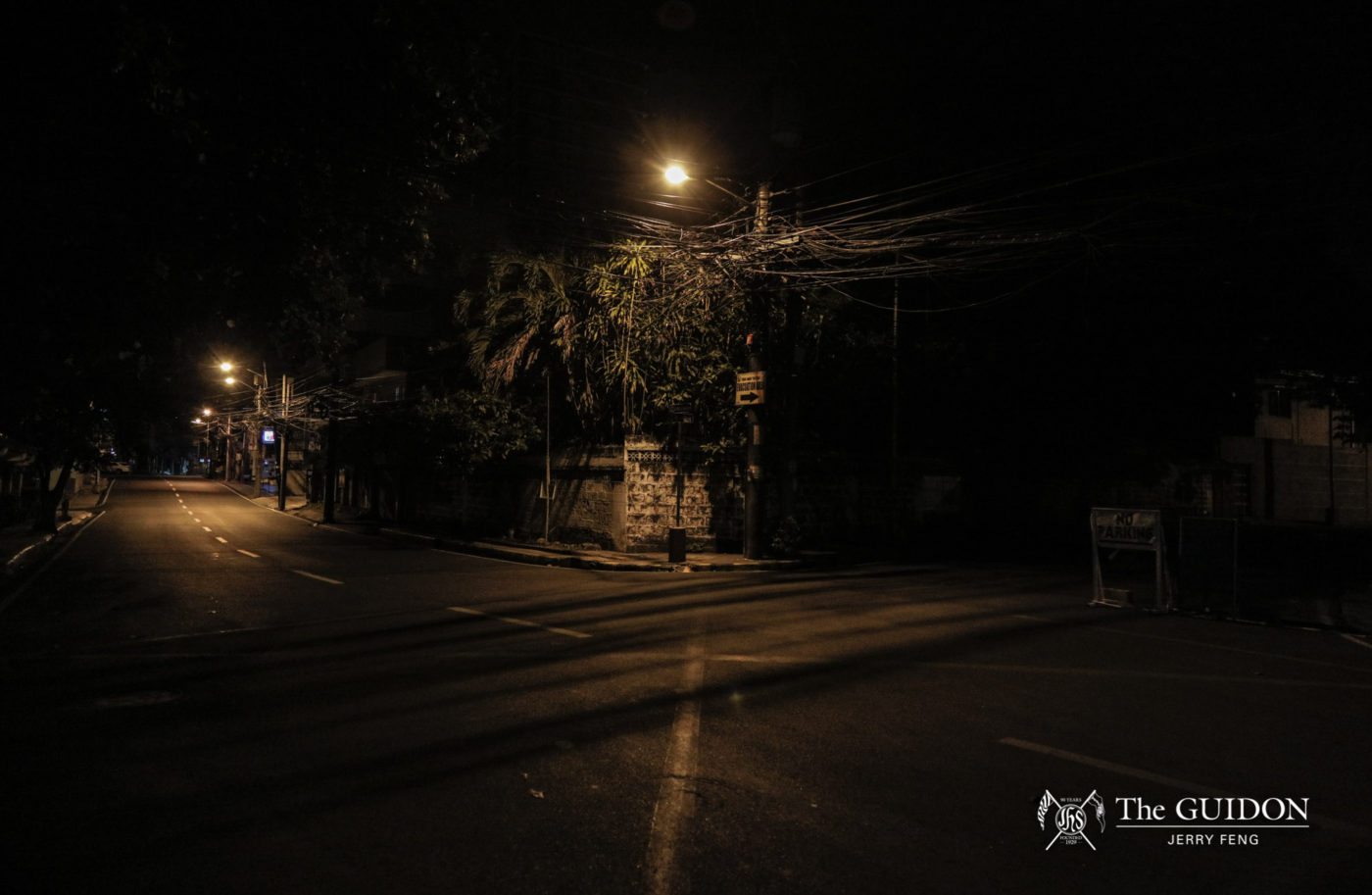
J. Abad Santos street in Barangay Little Baguio of San Juan City used to be regularly filled with vehicular traffic, often to a standstill. The street has become silent and devoid of activity ever since the implementation of the ECQ. Multiple LGUs have implemented curfews in their respective cities to limit movement and prevent the spread of the virus.
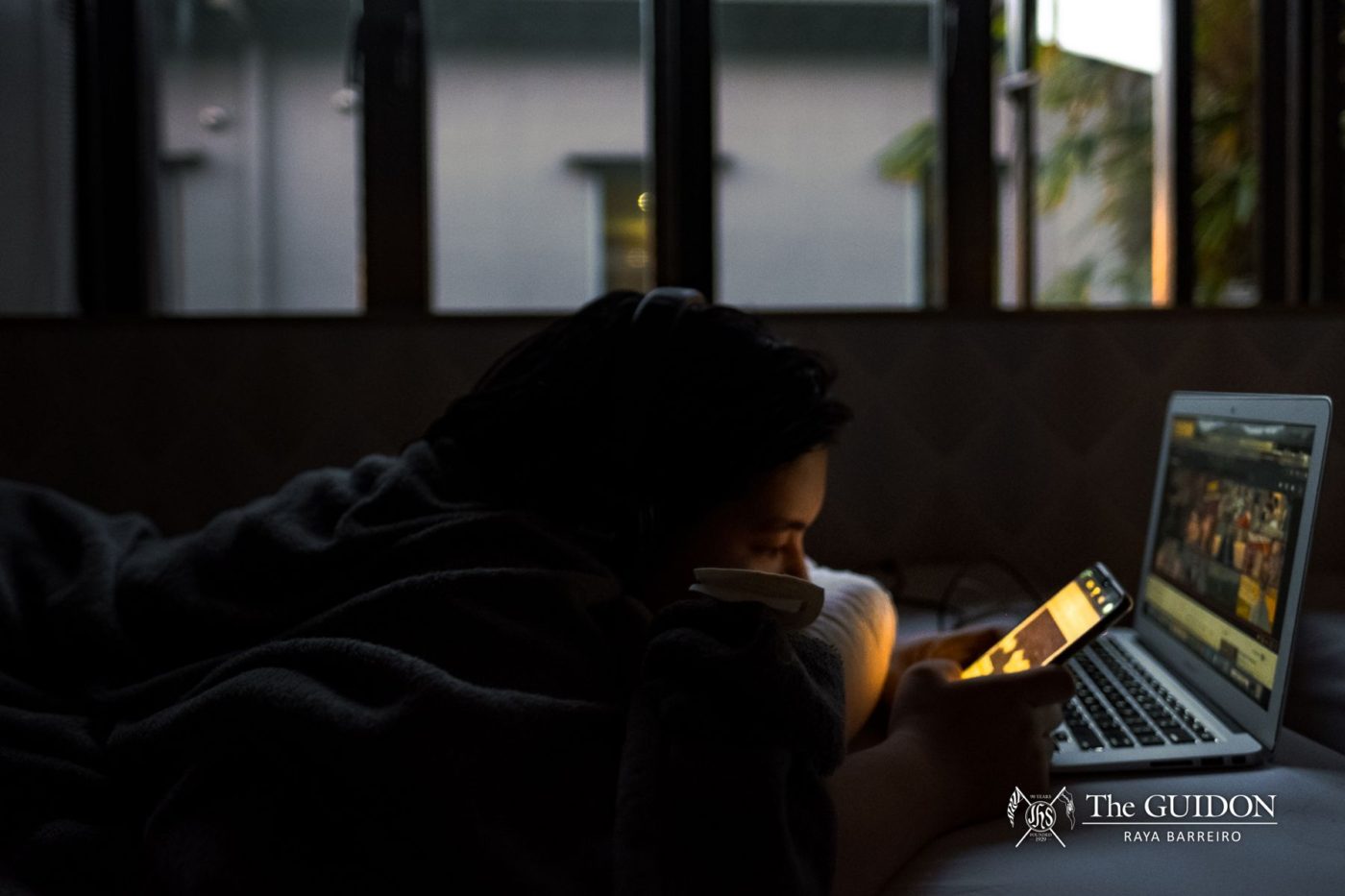
Residents without quarantine passes remain in social isolation while trying to stay connected. Digital spaces have been far from quiet as entire livelihoods have been forced online.
Aside from being another means of entertainment, online platforms have also become essential in evaluating the government’s efforts against the virus. Many have opened their eyes to the government’s ineffective attempts to contain the virus, and have used social media to voice their much-needed dissent. In lieu of protests on the streets, online rallies were organized throughout the lockdown in order to unite and speak against the government’s lackluster leadership. With more time on their hands, citizens have more opportunities to stay vigilant, informed, and connected.
The COVID-19 pandemic has uprooted the lives of Filipinos across the nation. Quarantine protocols have instilled a sense of uncertainty in every Filipino—the virus does not choose its victims, and each sector has suffered in their own way. From essential workers to health care personnel to entrepreneurs, the adverse effects of the virus and the government’s lacking response hit every facet of our daily lives.
As the nation struggles to fight against the virus amid crumbling economic stability, Filipinos must stand as one to fight for effective, fair, and compassionate relief from the government.

